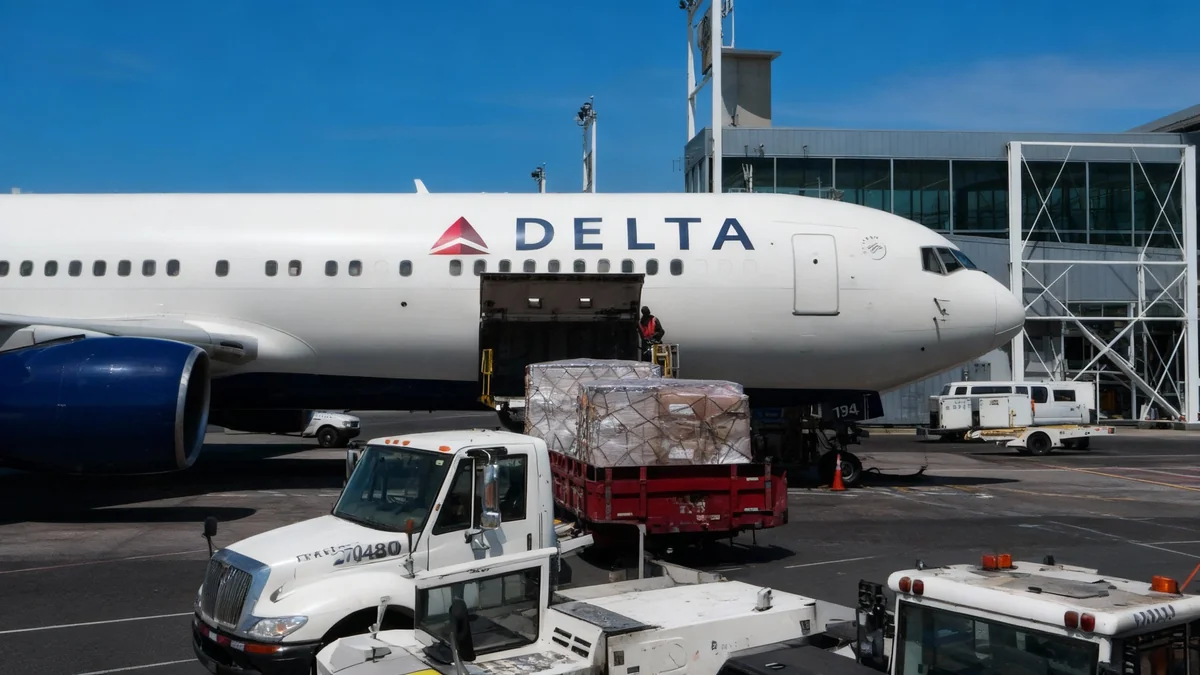Two dozen U.S. House Democratic lawmakers have formally asked Delta Air Lines to explain its potential use of generative artificial intelligence in setting ticket prices. The letter, sent to Delta CEO Ed Bastian, raises concerns about the possibility of "individualized, surveillance-based price discrimination" affecting consumers.
Key Takeaways
- House Democrats questioned Delta on AI use in pricing.
- Lawmakers fear AI could lead to personalized price increases.
- Delta states it does not use personal data for individualized offers.
- Legislation has been introduced to ban AI price discrimination.
Congressional Inquiry into AI Pricing
The group of lawmakers, including Representatives Jesus "Chuy" Garcia, Jerrold Nadler, Alexandria Ocasio-Cortez, and Dan Goldman, sent their letter on Wednesday. They specifically asked Delta to disclose whether it plans to use AI to raise prices based on personal data.
This inquiry follows earlier concerns raised by senators in July. Lawmakers believe Delta has not adequately addressed these prior questions regarding its pricing strategies.
"While Delta claims it has 'strict safeguards to ensure compliance with federal law,' it has not explained what those safeguards are," the lawmakers wrote in their letter.
Fact Check
Delta Air Lines stated it plans to deploy AI-based revenue management technology across 20% of its domestic network by the end of 2025.
Delta's Response to Allegations
Delta Air Lines issued a statement on Wednesday addressing the lawmakers' concerns. The airline asserted that it does not use AI to create personalized offers based on individual customer information.
"There is no fare product Delta has ever used, is testing or plans to use that targets customers with individualized offers based on personal information or otherwise," Delta stated.
Historical Context of Dynamic Pricing
Delta has previously explained that airlines have used dynamic pricing for over three decades. This system adjusts fares based on factors such as overall customer demand, fuel costs, and competitor pricing. The airline emphasizes that this traditional dynamic pricing does not involve a specific consumer's personal data.
Understanding Dynamic Pricing
Dynamic pricing is a strategy where prices for products or services fluctuate based on market demands. In the airline industry, this means ticket prices can change frequently depending on how many seats are left, the time of year, and other broad market conditions.
Concerns Over Personal Data Use
Lawmakers expressed worry that airlines might use AI in conjunction with personal data, such as a consumer's internet usage, to identify when individuals have a greater need or desire to travel. For example, they cited the scenario of an airline potentially increasing fares after detecting a customer visiting a funeral home website.
Delta President Glen Hauenstein had previously made a statement that lawmakers quoted in their letter. Hauenstein reportedly said Delta would use generative AI-powered pricing to ensure airfares are tailored to "that flight, on that time, to you, the individual." This statement appears to be a key point of concern for the congressional group.
Government and Legislative Action
The U.S. Transportation Secretary, Sean Duffy, indicated in August that his department would investigate any airline found using AI to set individual prices. "We would engage very strongly if any company tries to use AI to individually price their seating," Duffy said.
In July, Democratic lawmakers Greg Casar and Rashida Tlaib introduced legislation aimed at preventing companies from using AI to determine prices or wages based on Americans’ personal data. This proposed legislation specifically includes a ban on airlines raising individual prices after a customer searches for a family obituary. The bill is currently pending.
The ongoing dialogue between lawmakers and airlines highlights the growing scrutiny on how AI technologies are being integrated into consumer-facing industries. Consumer advocates and policymakers are increasingly focused on ensuring fair pricing practices and protecting individual privacy in the age of advanced algorithms.





